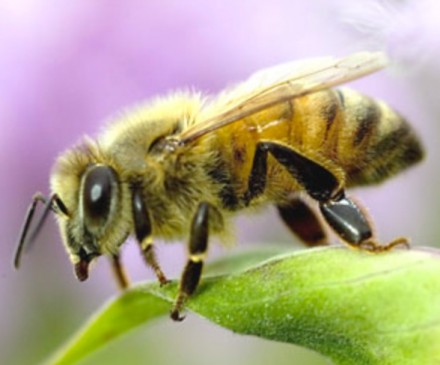There are some things in life I can’t fathom.
For instance, how can honey bees do all they do?
I mean, consider the half-pound of honey on my kitchen counter here in my new house in Miami and ponder this: One bee, in her life, contributes a total of only about an eighth of a teaspoon!
No wonder the poor queen lays upwards of 2,000 eggs a day and the average hive has 40-50,000 bees.
In defense of their low production levels, however, I will say that honey bees live, on average, only six- to 12-week lives — albeit action packed, achievement oriented ones no doubt filled with the satisfaction of work well done, camaraderie, and community. Being small of scale, I like to think that the spatial and temporal realms somehow coincide and that those mere weeks feel like a lifetime to them.
A lifetime of hard work, I hasten to stress, in that each bee assumes a number of jobs, moving, as they age, from one form of bee work, to another, including, but not limited to, cleaning the hive, rearing the young, guarding the queen, processing honey and pollen, foraging, and fanning the hive to keep the temperature right. In fact, many bees die because their little wings wear out: wear out! Well, it’s little wonder what with all they do.
Not only all this, but on top of everything else, they perform a Nobel prize-winning caliber of service to mankind while gathering the nectar that, mixed with their stomach enzymes, eventually evaporates into honey. As they move from blossom to blossom (their best job in my opinion), they pick up one plant’s pollen and (accidentally) deposit some on the stigma of other plants’ blossoms.
Experts say that about one-third of the world’s crops are pollinated by bees. One. third. of. the. world’s. crops.
So, these little worker bees, which are all female, by the way (the males, known as drones, are there only to mate with the queen once a year), perform a catalytic action absolutely required for food to grow.
On top of everything else, the fruits of their labors are uniquely delicious, health giving, and even medicinal.
According to Bee Lessons, a wonderful little book written by Boston-area bee keeper Howard Scott, the life of a bee is an incredible tale of devotion to the hive, cooperation, division of labor, instinct, and love.
But how do they know how to do all they do?
What clues them in, for instance, to knowing when the time is right to transition from one bee job to the next?
I’m doing that now: I’ve just left everybody and everything I know and all I’ve worked at and moved (as I said) to Miami.
I was hesitant to make the change.
I’ve loved living on Boston’s South Shore and writing about food. Through the work, I’ve discovered amazing things I would never have found otherwise. It’s hard to let go.
Do bees get attached to their last job?
I doubt it but maybe they do.
Maybe they buzz back to the old cleaning station a few times before remembering that they’ve become queen protectors.
It’s going to take me longer than that.
Bees do everything faster.










